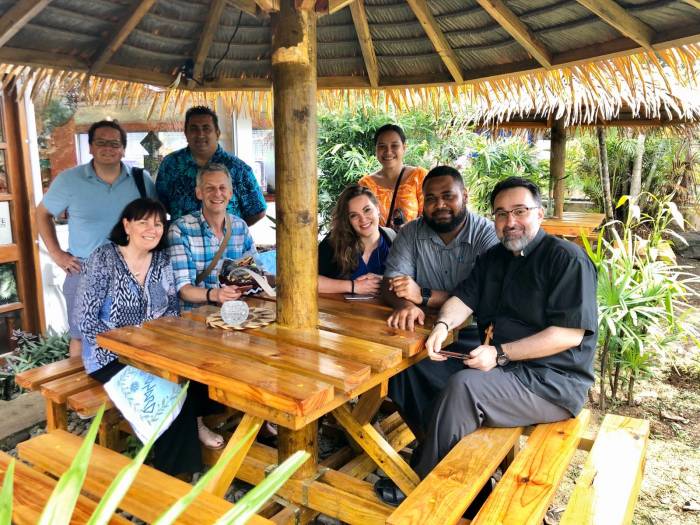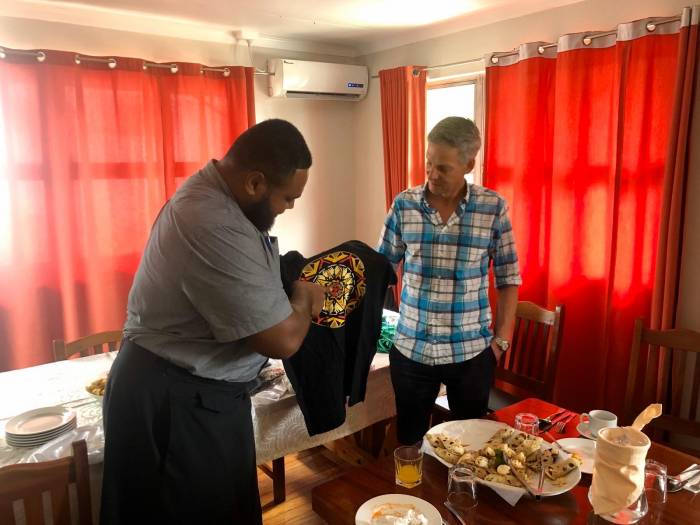Suva, Fiji – 350 Pacific today hosted a team from the World Council of Churches, whose members are in Fiji as part of the WCC’s Pilgrimage of Justice and Peace (PJP), which this year focuses on the Pacific.
Historically, the differences in religious views have been the cause of long drawn out wars and civil unrest. More recently, however, spiritual leaders across major denominations have taken significant steps to agree that climate change and its impacts need global solidarity for an ethical approach to protecting God’s creation.
 This rings true especially in the Pacific, where communities are organised around religious denominations in various forms, with the common belief that nature is a gift from God and damage to God’s creation is an act of sin.
This rings true especially in the Pacific, where communities are organised around religious denominations in various forms, with the common belief that nature is a gift from God and damage to God’s creation is an act of sin.
“We have passed the tipping point and unanimously agree that the severity of the impacts of the climate crisis will not lessen. The science tells us that things are only going to get worse, and more importantly, no-one will be exempt from facing the brunt of this human-induced crisis. This is why we need to strengthen our community networks and stand in solidarity with the institutions which have chartered stormier seas to figure out ethical solutions to this global problem,” said Fenton Lutunatabua, Managing Director of 350 Pacific.
This Pilgrim Team is one of four in Fiji, in the lead up to a PJP Reference Group meeting in Suva. Two Pilgrim Teams are focusing on the climate crisis with and values the opportunity to talanoa, to share the work being done across the Pacific region in response to the challenges arising from the climate crisis. 
“Finding spaces for collaboration is very important as 2020 kicks off a year of significant climate action where frontline voices need to be more explicit, whilst drawing on the wisdom of our ancestors and humility of our religious beliefs. One of 350 Pacific’s many strengths is storytelling, especially when it comes to amplifying young frontline voices and strategically using social media – a strength that is a valuable component of how we can continue to engage our communities in this climate crisis,” shared Rev. James Bhagwan, General Secretary of the Pacific Council of Churches.
Spiritual leaders, regardless of their standing in the community, serve as advocates for sustainable behaviours for followers and the wider public. Convening public consultations and sharing sermons on environmental stewardship are the best known ways to engage Pacific communities in addressing issues to climate change, because all participants show up with a sense of humility and intention to solve a common problem.
For more information please contact:
Patricia Mallam